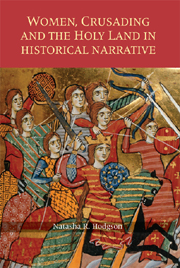6 - Mothers
from PART II
Published online by Cambridge University Press: 12 September 2012
Summary
Mothers and Medieval Society
THE historian of women, while recognising that motherhood is biologically exclusive to the female sex, must be careful to avoid applying ‘universal’ values or innate qualities to mothers, as their experiences were affected by a variety of criteria including wealth, social class, and individual perspective. It is true that medieval women were often defined solely by their unique capacity to produce children, but not all of them became mothers, especially where relatively high rates of celibacy existed. Even then, pregnancy and birth only formed part of the parental process – the conventions surrounding child rearing and the interaction between parents and children are, like gender, subject to social change. When focusing on the medieval period, a further layer of complexity is added by the specific problem of male authorship in relation to the female experience of motherhood. Self-evidently biological and social restraints limited men's experience of motherhood, but relationships with their own mothers as well as medical knowledge and tradition helped to form opinions that varied with individual authors. A medieval male perspective on the maternal role, no matter how alien it may seem to modern women, can still provide valuable evidence about how motherhood was perceived by contemporaries.
Traditional Views on Motherhood
The reliance of medieval authors on tradition allows for a fairly consistent literary construct of motherhood for this period. The biblical command to ‘Honour thy father and thy mother’ is described by Blamires as fundamental to the case for women, and allowed mothers a measure of authority that was not bestowed upon any other female role.
- Type
- Chapter
- Information
- Women, Crusading and the Holy Land in Historical Narrative , pp. 154 - 196Publisher: Boydell & BrewerPrint publication year: 2007



